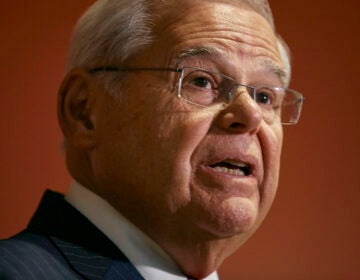New Jersey to release new teacher evaluation standards this week
The Christie administration will roll out its long-awaited regulations for teacher evaluations on Wednesday, including outlines for how student achievement will be used in grading teachers and principals starting next school year.
But one thing not coming will be specific state funding for districts to put the new systems in place.
Gov. Chris Christie’s proposed 2014 state budget provides some extra money for arbitration but none for the districts themselves.
Specifics posted online
The proposed regulations posted online by the state Department of Education Monday indicated there could some flexibility in the yardstick for grading teachers under the new system, potentially quelling some of the expected debate over the use of student test scores.
For example, rather than setting a precise percentage that state test scores will count, the proposed regulations give the state a range and call for it to set different weights for different factors each year.
For the vast majority of teachers who do not teach in tested grades or subjects, there also will be some flexibility as to what they can use for their so-called student-growth objectives.
Finding that happy medium
Either way, student achievement will still count for as much as half of a teacher’s evaluation, the rest based on classroom observations. But state officials stressed they wanted some leeway built in to continue to develop the best mix.
“We’re setting broad parameters on the different weightings and the numbers of student-growth objectives,” said Timothy Matheney, the state’s director of teacher evaluation. “We wanted to build in the flexibility so we can continue to grow the system.”
TEACHNJ’s linchpin
To be presented to the State Board of Education on Wednesday, the regulations are the linchpin that will allow districts to start implementing a statewide system of teacher evaluations next fall, as required under the state’s new tenure law, the Teacher Effectiveness and Accountability for the Children of New Jersey Act (TEACHNJ).
The new law requires all teachers be gauged on specific evaluation guidelines and rated on four levels, from “ineffective” to “highly effective.”
Those ratings will then determine when and how a new teacher is to receive tenure. Those teachers seeing ratings below “effective” will be subject to improvement plans, and after two consecutive years, they could be brought up on tenure charges.
Still, even the preparation for the new system has proved a heavy lift for districts, with the choice and purchase of evaluation instruments underway and training of staff still to come.
Funding a concern
As of now, the state is not expected to help foot that bill, at least not yet. Christie’s budget does include $500,000 for implementation of the law, but a spokeswoman said that was to help finance a new state arbitration system that has begun to settle tenure disputes.
No additional aid will come for districts to help defray their costs, and the proposed regulations maintain that the law could ultimately save the districts some of their legal expenses in tenure disputes.
Any other costs would be covered by the state’s existing formula aid for professional development, per the regulation’s summary.
More details
The 104-page package of regulations is heavy in detail, from the makeup of School Improvement Panels that will oversee each school’s evaluation system to the length and advanced notice of classroom observations.
For instance, first- and second-year teachers would see a minimum of three observations, two of them full-class or 40-minute visits that come with advanced notice and a preconference; the third is a 20-minute, unannounced observation.
For third- and fourth-year teachers, one announced observation must be at least 40 minutes, and the two shorter ones are unannounced. Tenured teachers must have a minimum of three short observations, at least one of them without prior notice.
The new regulations include requirements for the evaluation of school leaders as well, something of a hybrid of the different methods for teachers.
Principals, for example, will see their rating a combination of student achievement of the school as a whole, the ratings for their individual teachers, and their own practices.
“We think there is a common thread running through this that really connects principals with their teachers,” said Peter Shulman, the assistant education commissioner overseeing the effort.
More to come
The presentation on Wednesday is only the first step, with the state board having a number of opportunities to make changes.
The proposal will also see at least two opportunities for public input, and the state Department of Education has said that it plans a broad public campaign to seek even greater input from teachers and other educators.
If all goes as planned, the final adoption of the new regulations would not happen until September at the earliest — right as the new systems go in place.
_______________________________________________________________
NJ Spotlight, an independent online news service on issues critical to New Jersey, makes its in-depth reporting available to NewsWorks.
WHYY is your source for fact-based, in-depth journalism and information. As a nonprofit organization, we rely on financial support from readers like you. Please give today.




